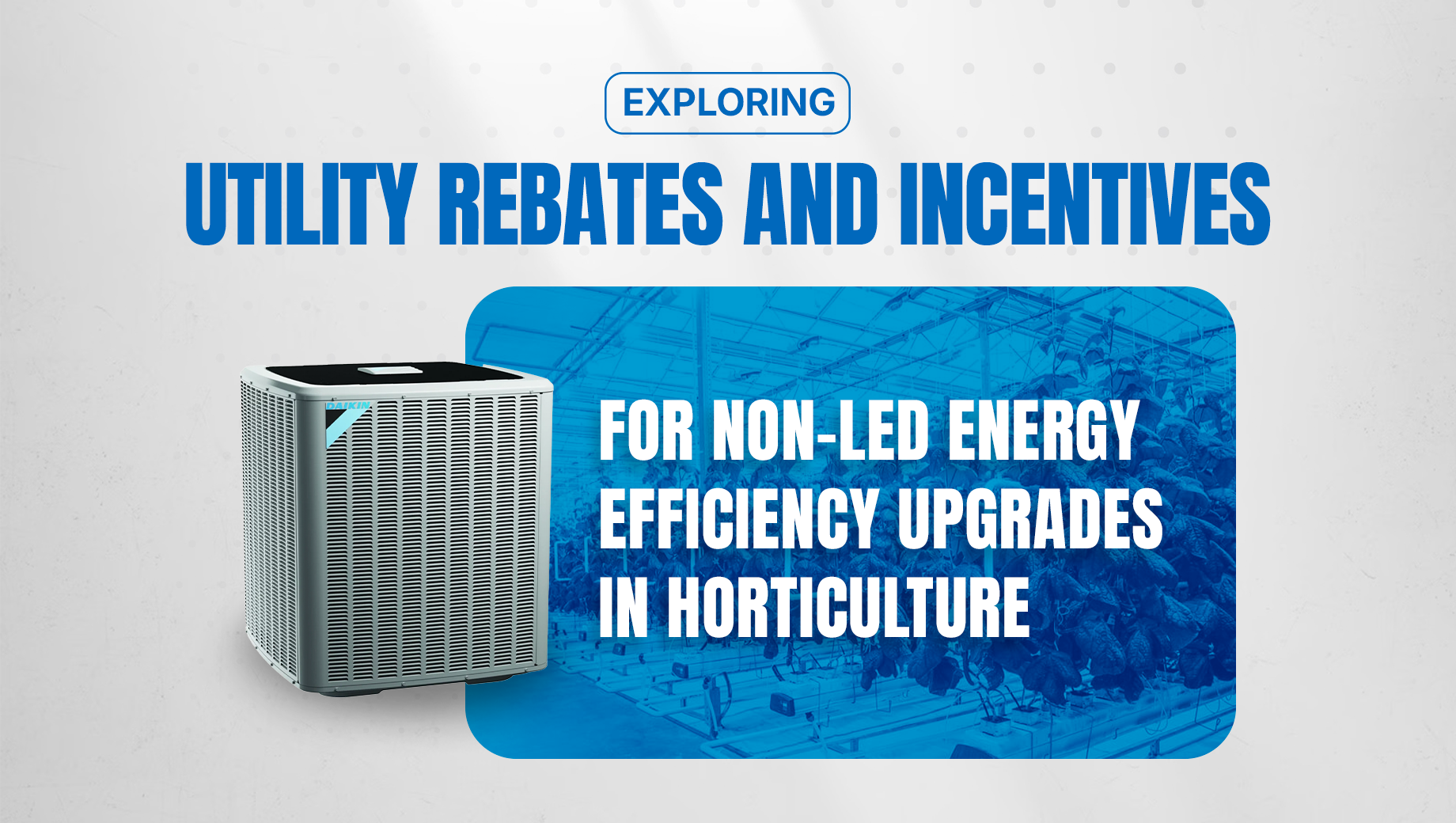Rebates Horticulture Savings

Heating, ventilation, and air conditioning (HVAC) systems are essential for maintaining optimal growing conditions in horticulture operations. Utility companies often provide rebates for upgrading to high-efficiency HVAC systems that use less energy while maintaining consistent temperature control. These upgrades can significantly reduce energy costs, especially in large greenhouse operations that require constant climate management.
Dehumidifiers play a crucial role in regulating humidity levels, preventing mold and mildew, and ensuring the health of plants. High-efficiency dehumidifiers can often qualify for rebates, helping growers save on energy while improving the overall growing environment. Utility providers recognize the energy savings associated with these systems, offering incentives to replace older, inefficient models with newer, energy-saving ones.
Water conservation is an ongoing concern for many horticulture businesses, especially in areas where water resources are limited. Utility companies may offer rebates for the installation of water-saving irrigation systems, such as drip irrigation or automated irrigation controllers. These systems optimize water use, reducing both water and energy consumption, which is especially important for large-scale operations.
Advanced climate control systems, which include temperature, humidity, and CO2 concentration regulation, are essential for maximizing plant growth and efficiency. Rebates for these systems are common, as they contribute to energy savings and help businesses reduce their environmental impact. By investing in energy-efficient climate control technologies, horticulture operations can cut down on energy costs while enhancing the growing environment.
VFDs are devices that allow motors to run at different speeds, improving the efficiency of fans, pumps, and other equipment. These drives help adjust motor speed based on the needs of the operation, reducing energy consumption by avoiding the constant running of motors at full capacity. Many utility programs offer rebates for installing VFDs as they significantly reduce energy costs in industrial and horticultural settings.
An energy management system allows businesses to track and optimize energy usage across their operations. These systems can help horticulture businesses pinpoint inefficiencies and areas for improvement, leading to long-term energy savings. Utility companies often offer incentives for implementing EMS, as they contribute to both cost reduction and sustainability efforts.
These rebates and incentives provide substantial financial relief for businesses looking to upgrade their equipment. The process can be complex, but the savings are significant. Whether you're installing new HVAC units, upgrading climate control systems, or adopting water-saving technologies, the financial incentives can significantly reduce the upfront costs of these improvements.
Moreover, the long-term benefits extend beyond just cost savings. These upgrades improve operational efficiency, reduce environmental impact, and contribute to sustainability efforts. Utility companies are increasingly offering these incentives to encourage businesses to invest in technologies that promote both energy conservation and reduced emissions.
Navigating the various utility rebate programs for non-LED equipment can be a challenge, with numerous programs offering different eligibility criteria and application processes. Working with rebate experts can ensure that horticulture businesses don’t miss out on opportunities. What Rebates helps businesses identify, apply for, and secure available incentives across a wide range of energy-efficient technologies.
For horticulture businesses interested in energy efficiency upgrades beyond LED lighting, the opportunities are vast. From HVAC systems to energy management solutions, there’s a wealth of rebate programs available to help you reduce energy costs and improve operational efficiency.
Start your savings journey today. Call us today, and let the team at What Rebates guide you through maximizing the rebate opportunities for your non-LED energy efficiency upgrades.